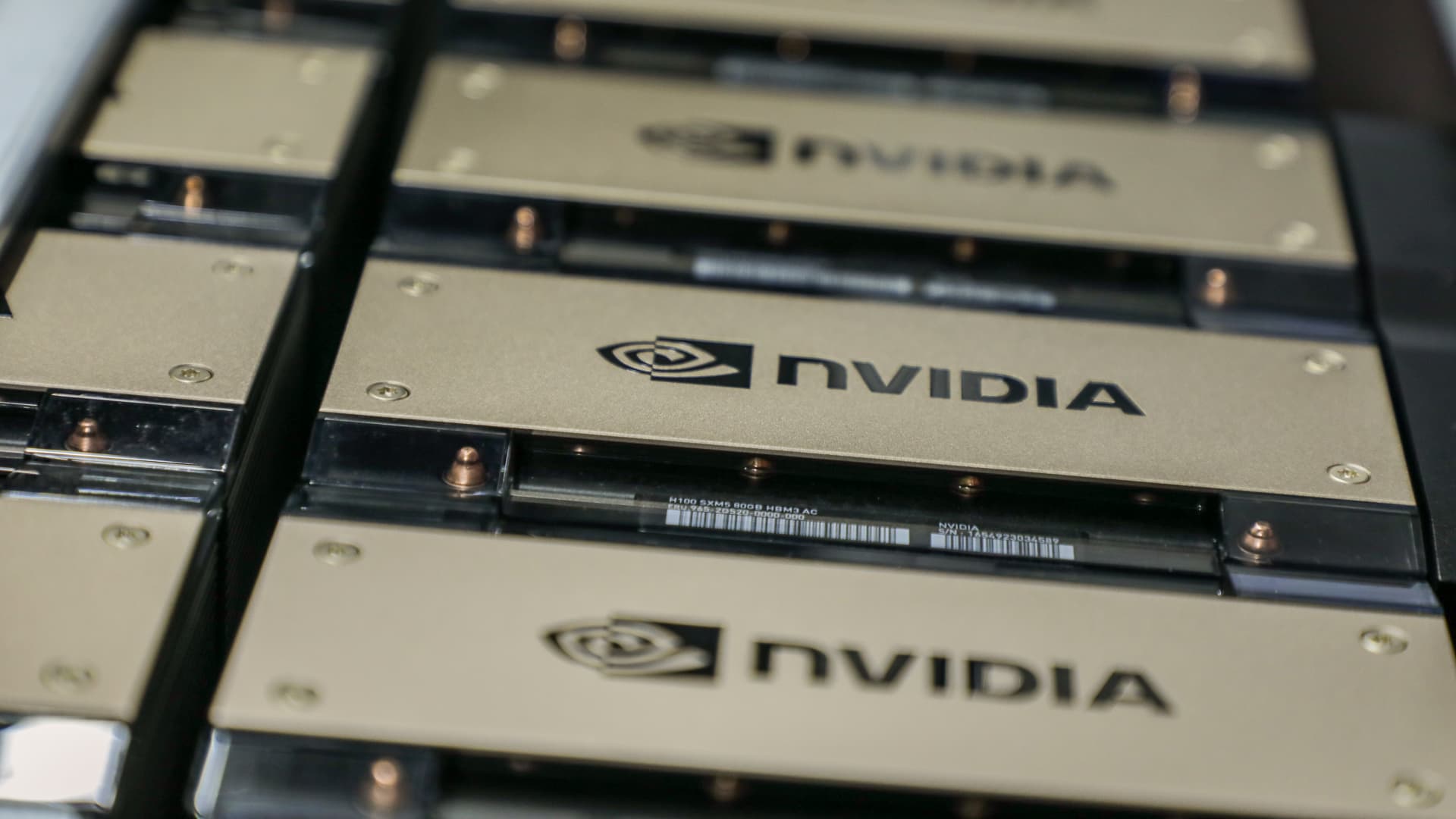Semiconductor stocks could plunge even more from here if a recession hits the U.S. economy, KeyBanc Capital Markets projects. “Recent U.S.-instituted reciprocal tariffs have increased concerns of a potential recession,” analyst John Vinh wrote in a note dated Tuesday. “We believe looking at the average of the last four cycles of -47% peak-to-trough EPS represents a more realistic downside scenario, which would suggest 30-40% further downside risk to current valuations if we were to enter a recession.” The forecast comes as chip stocks are already =under pressure following President Donald Trump’s sweeping “reciprocal” tariffs announcement earlier this month. The iShares Semiconductor ETF (SOXX) is down 7% since April 2. Vinh noted that while the fund’s trajectory in 2025 remains uncertain due to tariffs, a resolution on that front could lead to gains in the second half of year. SOXX is down 18% year to date. SOXX YTD mountain SOXX, year-to-date Although the Trump administration has exempted chips — as well as other tech devices and components like smartphones and computers — from tariffs, ongoing trade uncertainty between the U.S. and China has still plagued the sector. both Nvidia and Advanced Micro Devices disclosed last week that they expect to take sizable hits as a result of curbs on exports to China, sending shares of chipmakers lower . Citing tariffs and continued inventory destocking headwinds, Vinh also lowered his revenues forecast of integrated circuits, excluding memory, for 2025 to 5% from 9% to reflect the impact on shipments. “Tariff impact aside, we expect the normalization of inventories in 1H25 to result in a recovery in 2H25,” the analyst also wrote. “However, tariff-related pull-ins and negative end-demand impacts from the current policy could extend the bottoming process into 2H25.” Vinh recommends that investors position in stocks levered to generative artificial intelligence or are further along the destocking process, naming Nvidia and Broadcom in particular. He has an overweight rating on both. His $190 price target for Nvidia and $275 forecast for Broadcom imply upside of more than 92% and more than 62%, respectively. Shares of Nvidia were more than 4% higher Wednesday, while Broadcom gained more than 5%.





